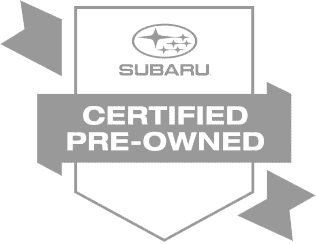Brake Smarter, Drive Safer: Why Replacing Your Brakes on Time Protects You on the Road

It's all great and well to get into a high-performance car and experience the thrill of powerful acceleration that pushes you back into your seat as you plant your right foot down, or the exhilaration of some high-speed driving on perfectly twisting back roads. But what happens when you can't slow down or stop in time?
Most of us have at some stage heard of the saying "Power is Nothing Without Control"
This is, in fact, a slogan that has become synonymous with Pirelli tires for many years, and it stands true especially when it comes to your vehicle's braking system.
Don't stray off now, as our article shares more about the safety-critical considerations of correct brake servicing and on-time brake replacement.
Why is Timely Brake Replacement Essential for Safety?
Well, for starters, timely replacement of your vehicle's brakes is crucial for both driver and passenger safety!
Being able to stop your vehicle quickly and effectively in any emergency situation should be non-negotiable. Safety first means regular maintenance and parts replacement that will allow your vehicle to offer optimal braking performance with shorter stopping distances without any drama.
By visiting the Granite Subaru Dealership sooner rather than later for a brake checkup, the timely servicing and replacement of any underperforming braking system components will ensure you of safer travels.
How do the brakes on my vehicle work?
To help understand the need for timely brake replacement, it's a good idea for us to take a quick lesson on how the brakes on our cars work.
Most modern vehicles use a four-wheel brake system that comprises hydraulically actuated brake calipers holding brake pads constructed of friction materials that clamp onto rotating brake disc rotors on each wheel hub.
These components are actuated when you press down on your brake pedal, causing a hydraulic brake cylinder to pressurize the hydraulic brake lines, which in turn cause pistons inside the brake calipers to push onto the brake pads to then clamp the rotating discs and slow down their rotation to effectively slow down and stop your car.
From this, we can now see why if any of these components are worn out or defective, the effectiveness of your vehicle's braking system is compromised.
How often should I replace my vehicle's brakes?
As a rule of thumb, Subaru owners should replace their vehicle's brake pads every 30,000 to 50,000 miles.
This interval depends largely on factors that include your driving habits, the environment, the quality of the brake pads and the brake rotors, and of course, the vehicle itself.
With all these different factors all playing their part in the wear and tear of braking system components, it's important for owners to pay attention to signs of wear.
What are the signs that my brakes need replacing?
Let's take a look at some warning signs that your vehicle's brakes need timely replacement.
Unusual noises under braking
Unusual squealing or grinding noises while braking can be attributed to worn brake pads, where the friction braking material has simply worn out.
Your brake pads should be replaced as soon as possible when hearing any unusual noises before further damage is caused.
Vibration or pulsation in the brake pedal
Pressing down on the brake pedal in any non-emergency braking situation should be smooth with no vibrations or pulsation through the brake pedal.
Most modern cars, like your Subaru, feature a standard anti-skid braking system (ABS), which, when required, will produce a very rapid pulsing of the ABS system felt through the brake pedal.
There is no need to worry about that rapid pulsing, as that's just the ABS system doing its job.
Badly warped or unevenly worn brake discs will, however, cause bad vibrations to be felt through your car's brake pedal, typically accompanied by a shaking steering wheel, especially when braking from higher speeds.
Dashboard warning lights
Your vehicle may have brake warning lights in the instrument cluster for both the ABS and the brake system warning lights.
Any brake warning light coming on indicates the need for the vehicle's brakes to be serviced or replaced. Problems such as low brake fluid will cause a warning light to come on, and it's best to have your brake system checked right away at your nearest Subaru Dealership.
Reduced braking effectiveness
Failure to service and replace your vehicle's brakes when required is dangerous.
Worn-out brake pads will drastically reduce the stopping power of the brake system and eventually lead to damage to both rotors and calipers, and of course, there is always the risk of not being able to stop effectively in an emergency.
Regular servicing and checking of brake fluid levels is necessary.
Low brake fluid levels can also reduce braking performance due to insufficient hydraulic pressure in the brake lines, as well as allowing air to enter the brake lines, which will lead to spongy brakes and compromised braking performance.
Why do car brakes wear out?
As we've already learned, your car's brake pads utilize friction to slow down the brake rotors.
Subaru's brake pads are made with specialized friction materials and binders that allow the pads to offer the factory-specified braking forces for increased braking performance and safety.
Needless to say, over time, especially when a vehicle does a lot of stop-start driving and heavy braking in congested traffic conditions, the pads and their friction materials have to work harder.
Working harder means that the friction materials are worn away quickly to a point where there is insufficient friction material left to allow for effective braking.
Just as brake pads wear out, your car's metal brake rotors are also subject to severe abrasive forces, causing them to wear out over time, become warped, or develop uneven wear, all of which reduce your Subaru's braking performance.
Get Subaru brake replacement at Granite Subaru.
When your Subaru brakes need replacing, contact the Granite Subaru dealership.
At Granite Subaru, our factory-trained and certified technicians will inspect your brakes for worn pads or rotors, check the brake fluid, and ensure overall system safety and performance using genuine Subaru parts specifically designed for your vehicle.





